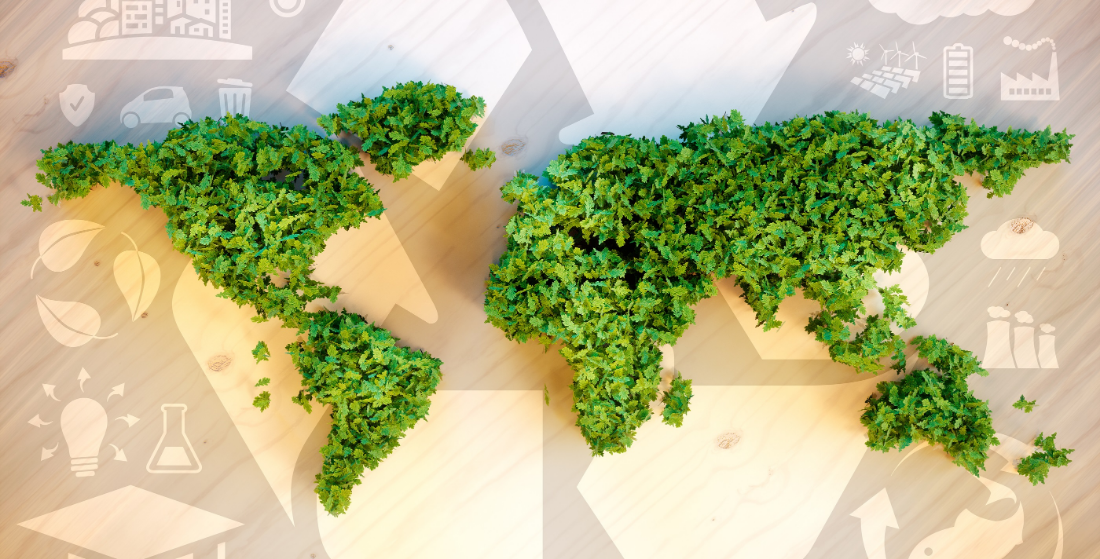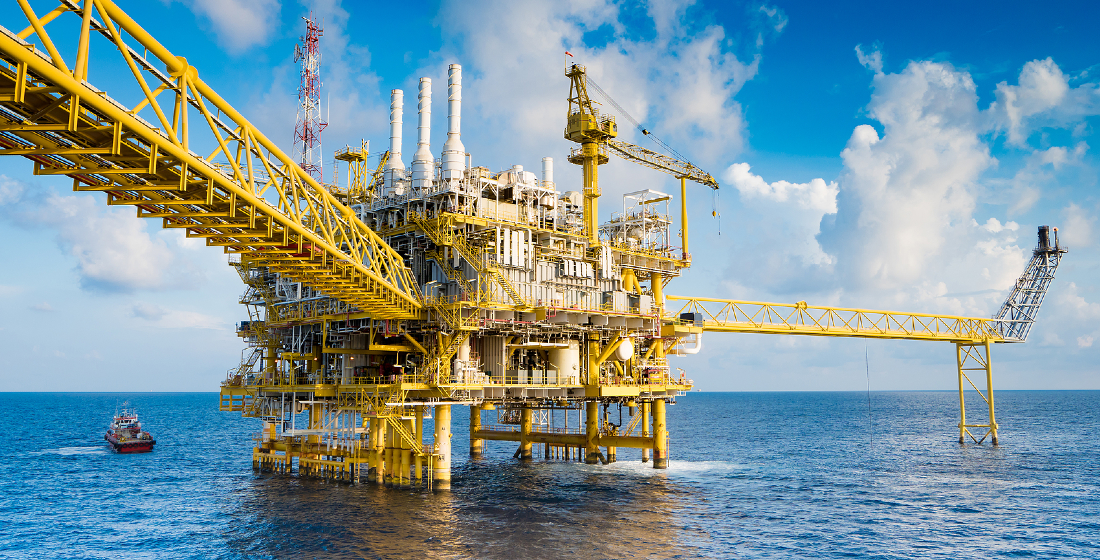Traders further build-in SDG principles and financing
Sustainability within commodity production and financing has been slow to properly kick-in. But changes are afoot, and many traders are now making valiant strides to ensure sustainability goals become a real part of their make-up. Jonathan Bell assesses some recent developments.

Sustainability was a major talking point at the TXF Singapore Commodities Finance Conference held in Singapore yesterday. And, although some sectors of the commodity world have been slow to move forward with the UN’s Sustainability Development Goals (SDG), it is now clear that financing and sustainability are moving together as a positive force in the sector.
In a highly positive and forward-looking session entitled ‘It ain’t easy being green’ - (thank you Van Morrison) - panel participants were of the mindset that within the next decade all finance will be ‘green’. Some good inroads have already been made, but to get to this goal much greater harmonisation, transparency and disclosure is going to be needed within much of the commodity sector.
In the audience response survey session at the conference, a question on sustainability also revealed what people in the sector feel about developments to date. When asked: how important is sustainability within commodity trade? – 24% responded that it was absolutely crucial; 33% said it was important but that the sector could be doing better; and, 37% said that it was important, but that not everyone was pulling their weight.
The biggest driver for commodity sustainability has to date come from the push for renewable energy. This has, and continues to, eat in to the traditional hydrocarbon sector – in particular the use and trading of coal. In a recent survey of over 500 top industry executives the other biggest drivers were seen as: government initiatives, multinational corporations’ concerns and consumer demands. The push is on.
However, we all continue to see incidents that only reinforce the need for greater sustainability in all commodity sectors from agri through to metals and energy production. Scenes of environmental destruction have been all too familiar to us for many years now – whether it is the burning of tropical rainforest for palm oil or cattle ranching etc, or mining disasters, or oil spillages – which provide sickening sights and a major wake-up call.
The late January 2019 Corrego do Feijao mine disaster at Brumadinho in Brazil, where a Vale-owned iron ore mine dam holding back tailings and sludge burst causing huge environmental damage and the loss of many lives. The full impact has yet to be assessed. This came only a few years after the Mariana mine dam disaster in Minas Gerais in Brazil, where 60 million cubic metres of iron ore waste and toxic sludge poured down the valley polluting vast tracts of land. That incident, again involving Vale, but also there in a jv with BHP Billiton, has been described as Brazil’s worst environmental disaster.
In a telling footnote to this, in late January Vale announced the decommissioning of all the company's mine dams that use the upstream method. The company has 10 dams of this type, all of them said to be already inactive. The cost of the change is estimated at R$5 billion ($1.3 billion) and decommissioning will occur over the next three years.
So, the driver in this case for Vale has simply been the total outrage of the loss of lives and immense environmental destruction. In other cases, the driver has often come through issues surrounding climate change. This is likely to be a more common factor as we continue to see the increasing frequency of extreme weather patterns. Much of the attention here is related to the use of fossil fuels – part of the overall renewables picture.
Currently coal is still used to produce just over 40% of the world’s energy. In the short to medium-term coal will continue to be part of the mix. But, and it is a big but in many cases today, it is becoming very difficult to finance new coal assets. And only last month, an Australian judge denied the appeal of Gloucester Resources trying to develop the new Rocky Hill opencast coal mine in the Hunter Valley in northern New South Wales.
The judge found in his ruling that the mine and associated greenhouse gas (GHG) emissions would add to the global total: "at a time when what is now urgently needed, in order to meet generally agreed climate targets, is a rapid and deep decrease in GHG emissions”.
Taking this through to the commodity trading company front, in February the world’s biggest trader of coal to the international market - Glencore - announced that it was going to cap its production of thermal coal (used in power generation) for the foreseeable future at around current levels of 145 million metric tons a year.
This development is particularly interesting as coal production and trading is such a big part of Glencore’s business, and a major revenue component. According to the company reports total adjusted Ebit was $6.73 billion in 2018, and thermal coal trading made up $1.3 billion of that. In addition, it was only last year that Glencore bought all of Rio Tinto’s coal assets.
In a lengthy press release Glencore said: “As one of the world's largest diversified resource companies, Glencore has a key role to play in enabling transition to a low carbon economy. We believe this transition is a key part of the global response to the increasing risks posed by climate change.”
It added: “To meet the growing needs of a lower carbon economy, Glencore aims to prioritise its capital investment to grow production of commodities essential to the energy and mobility transition and to limit its coal production capacity broadly to current levels.”
It would seem that a key driver here for change is coming from some of Glencore’s major investors who are keen to distance themselves from being associated with polluting coal emissions. Glencore also said that its move comes following engagement with investor signatories of the Climate Action 100+ initiative.
Listing five steps the company intended to take, it also noted: “Glencore recognises the importance of disclosing to investors how the company ensures that material capital expenditure and investments are aligned with the Paris Goals. This includes each material investment in the exploration, acquisition or development of fossil fuel (including thermal and coking coal) production, resources and reserves, as well as in resources, reserves and technologies associated with the transition to a low carbon economy.”
With such a big stake in coal Glencore is still of course going to be a major player in the coal production and trading market for the foreseeable future. Glencore has also made it clear that it does not intend to divest its coal portfolio, and is committed to Australia, where the company produces around one-fifth of the country’s coal.
Australia is the world's largest exporter of metallurgical coal, used in steel making, accounting for around 17% of global supply. It is the world's second-largest exporter of thermal coal, after Indonesia, accounting for 20% of the seaborne market. And for the present, the market seems quite buoyant. This year coal is expected to displace iron ore as Australia's biggest commodity export earner, with exports of coking and thermal coal expected to top $67 billion, according to Department of Industry figures.
The Australian Resources Minister, Matt Canavan, stated in February: "What I would like to see is that Australian mining companies and Australian jobs capture as much of the world coal market as possible." At the same time the minister also commented on Glencore’s announcement of capping production, saying: "Call me cynical, but I think the announcement [by Glencore] appears to be much more to do with the self-interest of Glencore than the planetary interest of trying to save the climate."
Looking at other sectors of the commodity world, last year trading company Gunvor Group – which has strategic investments in industrial infrastructure such as oil refineries, pipelines, storage, terminals, mining and upstream – closed a unique financing linked to sustainability targets. With the deal, Gunvor is the first energy commodities trading company to close a financing in which the interest rate will be dependent on the company’s year-on-year improvements in areas such as transparency, governance and the environment.
The $770 million secured borrowing base facility includes performance commitments related sustainability targets of the company’s Antwerp and Rotterdam refineries. The facility was arranged by ING Bank, which acted as sole coordinator and active bookrunner. The deal signed in October 2018 with the borrower being Gunvor Belgium.
Gunvor will receive a discount on the interest rate of their loan if the sustainability targets have been met and vice-versa. If Gunvor severely underperforms on the sustainability targets, a premium will be added to the interest rate. This initiative will serve as a test run for a more expanded future programme for the company’s financings.
The sustainability targets are focused on the environment, social impact and governance, and specifically address areas like reductions in CO2 emissions, waste and water management, improvements to personnel safety at the refineries, transparency reporting related to feedstock origination and others.
Related savings from the potentially lower interest rate will go to supplement funding for the recently launched Gunvor Foundation, the company’s not-for-profit entity dedicated to philanthropic giving.
The structure for the sustainability targets was created by Gunvor in collaboration with ING as the sustainability coordinator and supported by a syndicate of 14 banks – namely DBS, Societe Generale, Rabobank, ABN Amro, Credit Agricole, Credit Suisse, Mizuho, Nedbank, SMFG, UniCredit, KfW Ipex-Bank, MUFG, Raiffeisen Bank and China Construction Bank.
At the time, Gunvor Group CFO, Jacques Erni, stated: “By partnering with our banks to set goals that achieve substantive results, we are demonstrating the seriousness with which we integrate sustainability into our business.”
Patrick Arnaud, managing director for trade commodity finance at ING Bank added: “We expect this innovative transaction will serve as an example of how we and our peers can provide energy commodity trading clients with financial solutions which also address the key sustainability challenges in this sector.”
On the soft commodity trading front, in March 2018, Singapore-headquartered agri-business trading company Olam International arranged what is believed to be Asia’s first sustainability-linked club loan facility. The $500 million deal has a tenor of three years.
Under the facility, Olam is committed to meeting improvement targets for a comprehensive range of environmental, social and governance (ESG) metrics, as assessed by Sustainalytics, a global leader in ESG and corporate governance research and ratings. The metrics are tested on an annual basis and if the pre-set improvement targets are achieved, the interest rate on the facility is subsequently reduced.
Unlike a syndicated loan where there is normally a lead bank which structures and arranges the financing, in this club loan format Olam has self-arranged the 15 participating banks and works in collaboration with them on achieving pre-set sustainability targets.
Olam appointed 15 banks with equal takes, namely: ABN Amro, ANZ, MUFG, BNP Paribas, Commerzbank, Commonwealth Bank of Australia, DBS, HSBC, ING Bank, Mizuho Bank, NAB, Natixis, Rabobank International, Standard Chartered, and UniCredit. ING Bank is the sustainability coordinator
At the time, Olam’s co-founder and group chief executive officer, Sunny Verghese, said: “We believe that this will serve as a catalyst in further developing sustainability-linked financing in the region. This is a good example of how sustainable companies can become more successful and of how we can ‘do good’ and ‘do well’ at the same time.”
Now time to get up to speed on the markets.
Here's our exclusive TXF Essentials subscriber content
Trade as an asset class: A troublesome best friend?
What is stopping trade finance becoming an easy-to-buy-and-sell asset class? For all the hype, what continues to turn something that should be straightforward into something so complex? TXF investigates.
Funding fibre: Can the UK catch up with Europe?
CityFibre, the first major wholesale fibre financing in the UK with project and corporate-style elements, bodes well for UK fibre investors and lenders. But cost of debt and speed of UK roll-out might be significantly improved if the regulator adopted a more European stance to overbuild risk.
Plus, to top things off... the news you thought you had but didn't
ACWA sounds out banks for $1.2bn Taweelah desal IWP
ACWA Power is currently testing bank appetite for the $1.2 billion Taweelah desalination Independent Water Project in Abu Dhabi. Three…
Graetz joins BayernLB as senior trade banker
Munich-based Peter Graetz joined BayernLB's trade and export finance team as a senior banker in January 2019. Graetz previously spent nine years at…
Total Eren's Malaspina onshore wind farm priced
Total Eren achieved full financial close last month on a $104 million DFI/ECA-backed loan to finance the 50.4MW Malaspina onshore wind farm in Southern Argentina…
Solarpack reaches FC on La Granja solar
Following signing in December 2018, Spanish developer Solarpack has reached financial close on the financing for the $114 million 123MW…
Leeds International Airport refi priced
AMP Capital has closed a £83 million ($107.2 million) DFI-backed refinancing of the outstanding 2017 £94.5 million debt package stapled to the Leeds…
Chancay port in Peru seeks $1bn funding
Sponsors of the $3 billion Chancay port in Peru – China’s Cosco Shipping Ports and Peru’s mining company Volcan – are sounding out bank appetite to finance the…
Financial close for Matiari-Lahore transmission line
On 27 February 2019, the Matiari-Lahore high voltage direct current transmission line project became the first private sector transmission project to achieve financial close…
Details emerge on Petrobras' TAG sale
Preferred bidder Engie is up against two consortia in the rebidding process for a 90% stake in state-owned Petrobras’ pipeline subsidiary Transportadora Associada de Gas (TAG)...





